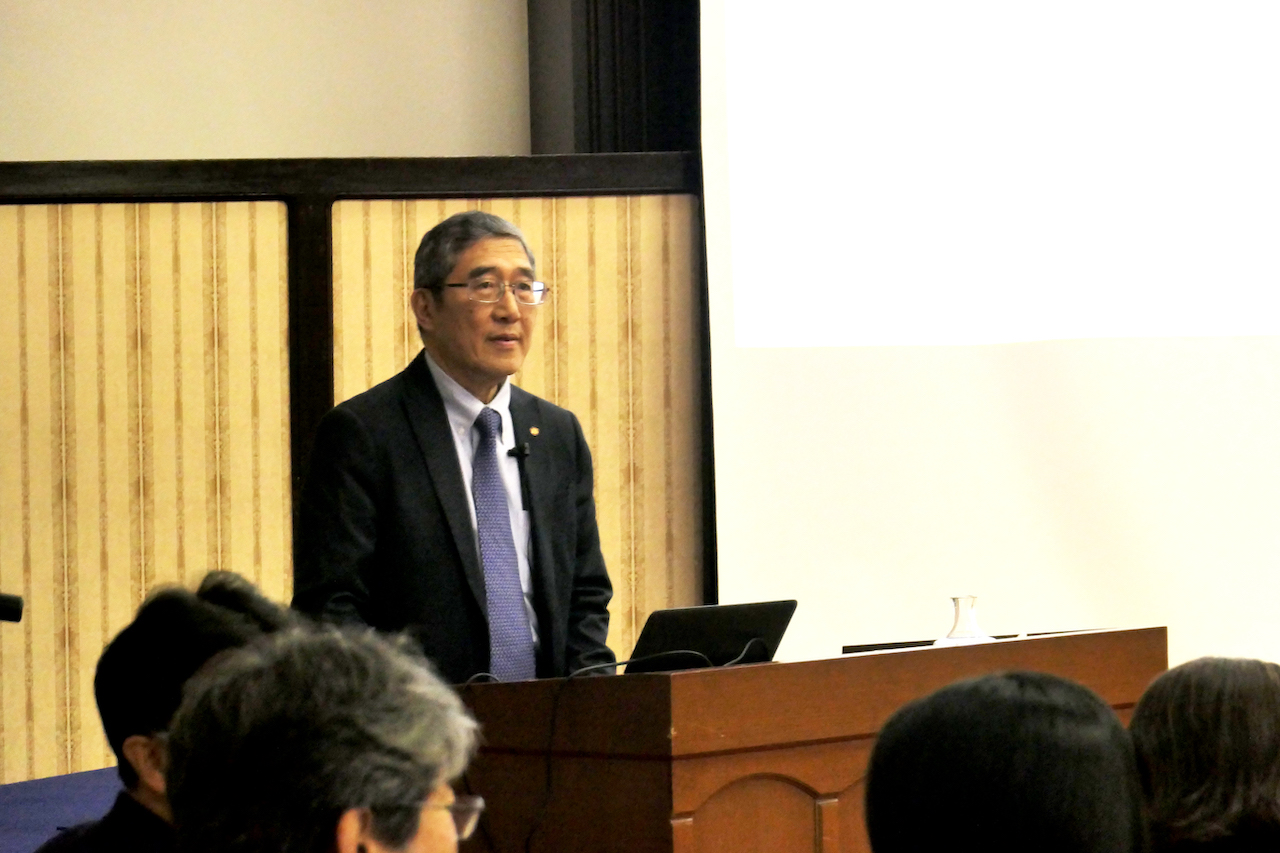Pioneering research papers and Samples of research achievements

-
C. K. Chang and H. Wang, "A Slicing Algorithm of Concurrency Modeling Based on Petri Nets", Proc. IEEE International Conference on Parallel Processing, St. Charles, Illinois, August 1986, pp. 789-792.
This is not the first paper mentioned the term “slice” of Petri net. There was a group from Germany worked on Petri net slices before 1986. However, earlier work on Petri net slices were drawn from theoretical research community focused primarily on Petri net theory. My paper is the first paper regarding Petri net as software specification from the software engineering (SE) perspective, and my method helped derive a sub-specification based on the construction of concurrency sets. There seems to be renewed interest in Petri net slicing although it is a very small research group. Recently I received request to make available of this early 1986 paper online as it has been out of print from the IEEE end.
-
Carl K. Chang, Tao Zhang and Mark Christensen, “Genetic Algorithms for Project Management", Annals of Software Engineering, Kluwer Academic Publishers, Vol. 11, 2001, pp. 107-139.
This is the first paper applied genetic algorithms to software management modeling and schedule/resource optimization – the most difficult task for software managers to handle in their daily life. Many later papers in this branch of software management research followed similar formulation and style of arguments as presented in my paper.
-
Jane Huang-Cleland, Carl K. Chang, and Mark Christensen, "Event-Based Traceability for Managing Evolutionary Change", IEEE Trans. Software Engineering, Vol. 29, No. 9, Sep. 2003, pp. 796-810.
This is the first paper in this branch of requirements engineering (RE) research based on the event-notification model. According to Google Scholar, it has collected more than 400 citations to date. (Note that RE is a rather small, although very important in my opinion, community of the general Software Engineering profession.)
-
Carl K. Chang, Hsin-yi Jiang, Hua Ming and Katsunori Oyama, "Situ: A Situation- theoretic Approach to Context-Aware Service Evolution," IEEE Trans. on Services Computing, Vol. 2, Issue 3, July-Sept. 2009, pp. 261-275.
This is the first paper on “Software Engineering Analytics” focused on a situation theory named Situ. The initial paper, shown above, is aimed to proposing a situation-centric method to support software service evolution. Later, I expanded the use of Situ to many other research domains, including Mobile/IoT/Edge computing, digital health, smart home design, etc. I regard “situation” as a new software abstraction leading to a new SE paradigm after the success of two SE paradigms previously: functions then objects.
-
Carl K. Chang,"Situation Analytics: A Foundation for a New Software Engineering Paradigm," IEEE Computer, vol. 49, no. 1, pp. 24-33, Jan. 2016, doi: 10.1109/MC.2016.21.
-
Carl K. Chang,"Situation analytics — at the dawn of a new software engineering paradigm," Science China (Information Sciences), 61:5, May 2018, pp. 050101:1-050101:14.
-
Carl K. Chang and Katsunori Oyama, "A Roadmap for Mobile and Cloud Services for Digital Health", IEEE Trans. on Services Computing, 11:2, 2018, pp. 232-235.
This paper laid out a very important roadmap to help researchers and industrialists to collaborate and develop a common platform to foster a global digital health R&D enterprise.
-
Carl K Chang, Paolo Ceravolo, Rong N Chang, Sumi Helal, Zhi Jin, Xuanzhe Liu, Hua Ming, "Software Services Engineering Manifesto - A Cross-Cutting Declaration,", 2021 IEEE International Conference on Web Services (ICWS), 2021, pp. 703-709, doi: 10.1109/ICWS53863.2021.00014.
The paper was initiated by the first author to lay out the foundation of an emerging area of computer science research, named software services engineering, that cuts across software engineering and services computing. Carl Chang has been active in both areas. He saw the unavoidable cross-pollination between these two research communities when the world is fast entering a new era of computing where services must become the first-class concept in computer science research and software engineering practice.
-
Carl K Chang, Zhongjie Wang, "Software Services Engineering Manifesto – Revisited,", 2022 IEEE World Congress on Services (SERVICES), Barcelona, Spain, 2022, pp. 11-12, doi: 10.1109/SERVICES55459.2022.00023.
The paper is the description of a plenary panel in the 2022 IEEE World Congress on Services which also improved the figure published in the prior manifesto paper.